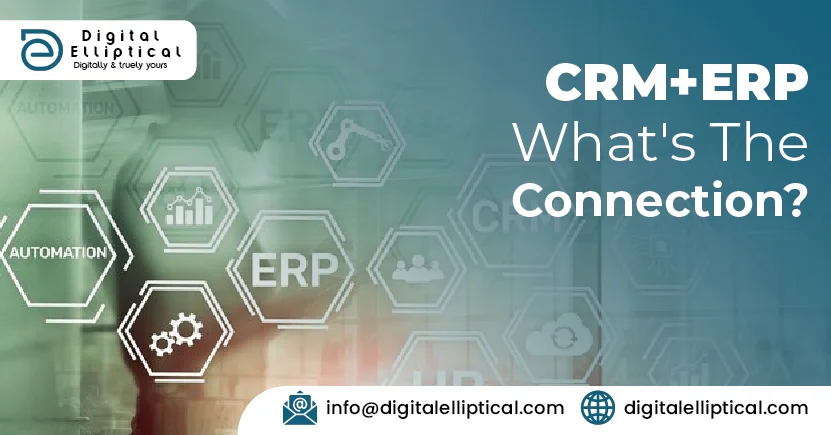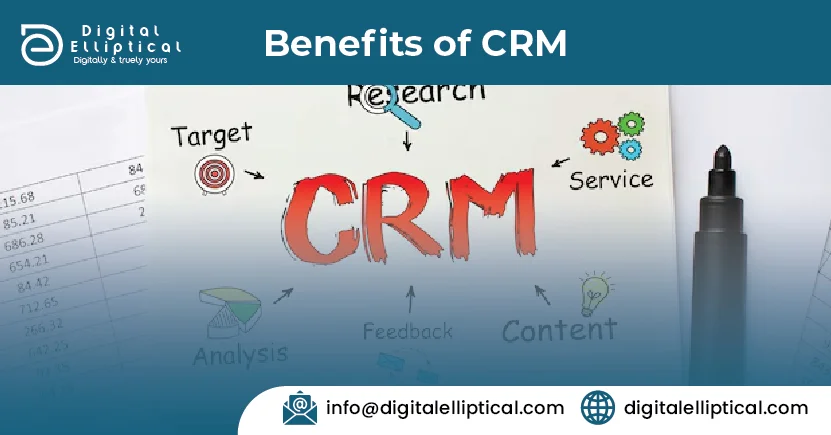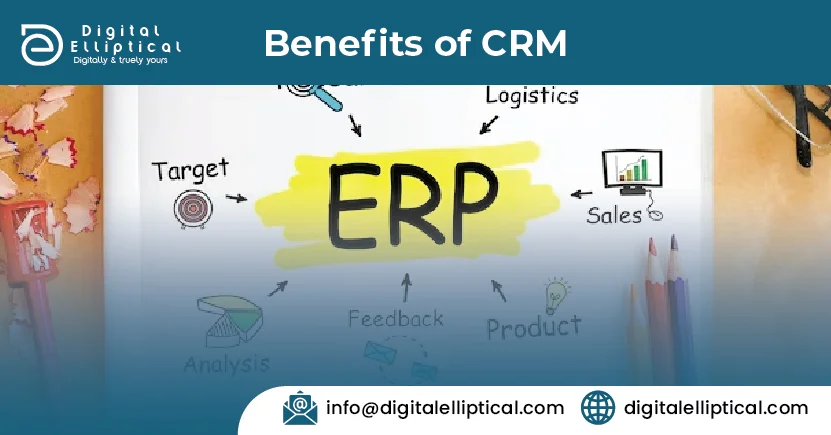CRM + ERP: What's the connection?
Enterprise resource planning (ERP) and customer relationship management (CRM) are two different procedures, although both aim to enhance an organization's overall efficiency and usefulness. Integrating the two saves a significant amount of time, money, and energy by automating operations, gathering and displaying relevant information in real time, and making other key operational improvements. Finally, these digital solutions provide commercial benefits that allow you to give a better product and brand experience before, during, and after each consumer transaction.
In this piece, we'll look at each of these processes and explain why combining them may be quite helpful for merchants.
CRM: CRM stands for Customer Relationship Management. It is a technology for managing all your company's relationships and interactions with current and potential customers. A CRM system helps businesses stay connected to customers, streamline processes, and improve profitability. It typically includes features for tracking interactions, managing sales pipelines, customer support, marketing automation, and storing contact information. By using a CRM, businesses can better analyze customer data and interactions, which can lead to more personalized service and improved customer satisfaction..
Benefits of CRM:
CRM, or Customer Relationship Management, is a system that helps companies in managing and analyzing customer interactions across the customer lifecycle, with the purpose of strengthening customer relationships, generating sales growth, and maintaining clients.
ERP: ERP stands for Enterprise Resource Planning. It is a type of software that organizations use to manage day-to-day business activities such as accounting, procurement, project management, risk management and compliance, and supply chain operations. An ERP system can also include enterprise performance management, software that helps plan, budget, predict, and report on an organization’s financial results. ERP systems tie together a multitude of business processes and enable the flow of data between them, thereby ensuring that every department in a company can access and rely on the same up-to-date information for their specific needs.
Benefits of ERP:
In today's fast-paced and ever-changing business environment, firms are continuously looking for methods to simplify processes, increase efficiency, and drive development. ERP systems have emerged as a game changer in this area. From small startups to major corporations, businesses across all industries are realizing the benefits of deploying ERP systems.
What’s the difference?
Individually, both of these tasks have the same purpose: to assist your company grow more lucrative. However, they concentrate on distinct aspects of your organization. An ERP platform decreases the resources (time, money, effort, etc.) necessary for your essential business activities, whereas CRM enhances sales volume through improved customer management. When used effectively, they may have a multiplier impact, giving your retail organization with the knowledge and operational efficiency it requires to remain competitive.
Integrate or Implement?
Whether you connect independent CRM and ERP solutions or use an ERP platform with built-in CRM capability, making their processes work together is critical. However, merging various systems might cause compatibility issues. Because different aspects of your business and software programs grow at different speeds, integrated components that work effectively now may no longer work several years later. As a result, many merchants prefer ERP packages that already incorporate CRM features. These all-in-one solutions have an obvious advantage: you don't have to worry about compatibility issues between modules built by different software suppliers.
Conclusion:
When two important processes, such as ERP and CRM, operate nearly totally independently of one another, maintaining consistent operations and communication to support successful decision-making can be difficult. For merchants seeking a genuinely comprehensive picture of their consumers and how they interact with their business, accurate and up-to-date information is critical.
Implementing an ERP platform with CRM capability built-in is a significant investment, but it can dramatically revolutionize your day-to-day and long-term operations through data-driven choices and workflows. Choose an ERP platform that is specifically developed for retail, as well as an installation partner who understands both the product and your sector.
Contact Systems to learn more about how ERP technologies help retailers increase profitability from inside.




